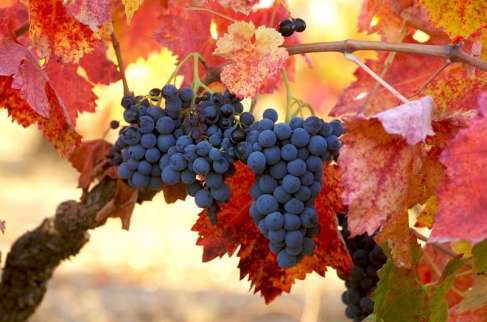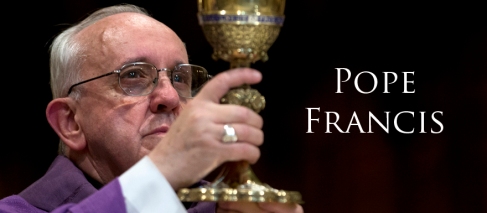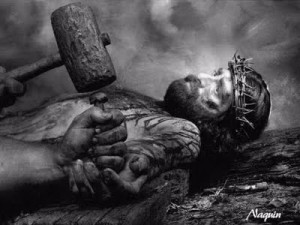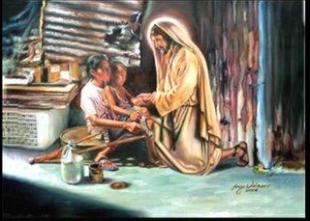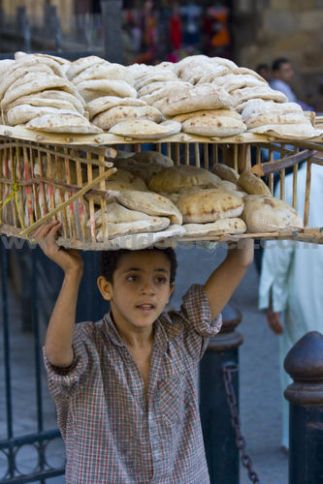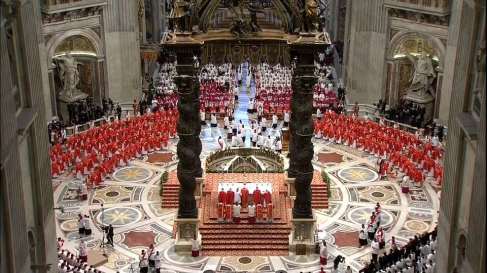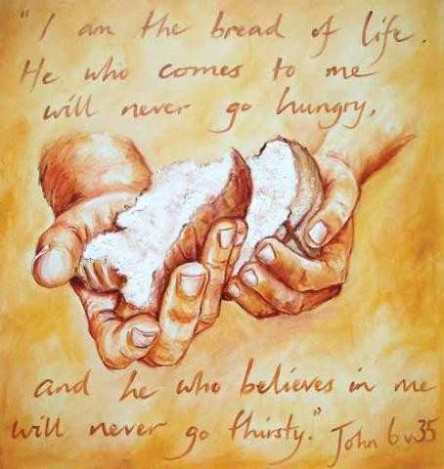
In John 6:22-71, which is commonly known as the “Bread of Life Discourse” we can observe a very Johannine style of writing, which are conversational and the answers of Jesus in a glance seems so illogical and has nothing to do with the question of the Jews. Yet, as Culpepper would put it, Jesus raises the conversation to a deeper level. In this occasion, prior to this text is the feeding of the five thousand, and according to Culpepper the people were just focused on the material food that Jesus had given, yet now, Jesus raised up the discussion and their understanding, that more than ordinary bread that satisfies physical hunger, there is a great hunger in the life of the person that needs to be fed and nurtured and that is the hunger for eternal life (cf. Jn 3:16). Jesus offered to them now, the “Bread of Life” which comes down from heaven.
Using the schema of discussion made by Culpepper, this part of the Gospel could be divided into three parts. First, Jesus emphasized to the crowd that the manna of their ancestors did not come from Moses, but it came from God. Yet, as the manna their ancestors ate, satisfied their hunger, Jesus offered to the people, a bread that could satisfy their ultimate hunger, for the eternal life; the bread of life, that is sent by God.
Second, in response to the request of the Jews for that bread that could satisfy their ultimate hunger, Jesus introduced that as He is the “Bread of Life”, the source and fount of eternal life. And, one can only approach fully Jesus and understand Him if he/she is called by the Father. As Bultmann would say that it is through God’s initiative that we could go near Jesus. Thus, faith and believing in Jesus as the “Bread of Life” is a response to God’s invitation. This part of the Gospel, echoes that of the theme of “being born again” in the third chapter of John. For truly, it is only through God’s initiative, “if we are born from above”, that we could truly understand Jesus’ words, and believe that Jesus is truly the “Bread of Life”.
Thirdly, it is only when we eat the flesh, and drink the blood of Jesus that we can attain eternal life. Now, Jesus equates the bread to his own body. For the Jews this is so absurd, and they did not even think about eating human flesh at all. Their misunderstanding created division and discouragement within the followers of Jesus. Because of this, many left Jesus and went their own ways. As Jesus asked His disciples of their decision, Peter gave a testimony, that truly, Jesus is the source of life, and aside from Him there is no other. At the end, Jesus’ use of “eating the flesh and drinking the blood” is on a metaphorical sense. Culpepper would say, that “eating” the flesh and in this case also “drinking” the blood means receiving Jesus and the life he offers.
The hunger and thirst the people had experience before did not cease as history unfolds. Today, much ever there is a deep hunger and thirst people are experiencing. There is the reality of an existential emptiness, that there is something lacking within. Today we try to fill in this emptiness with so many things, and even study this experiential reality for it to be understood and hopefully filled in. Yet, as philosophers would tell us, this existential emptiness that we experience is a constitutive reality of being human. Part of being human is to experience emptiness, loneliness, disconnectedness. The problem in this modern world is that the search for meaning and fullness of life has shifted its course and was enveloped by the culture of consumerism and “instantism.” People tries to fill in this emptiness with material possession, power, relationships that led to an inordinate attachment to them, and they want this to happen instantly. This became the very ground of their own identity as a human person.
This excerpt of the Gospel of John reminds us of a primordial reality, of who we truly are, children of God. Thus, it is only God that can fill in that emptiness within us. Spiritual writers and even some psychologist would call this existential longing as God’s hole, where only God can fill in. Thus, we see that Jesus in the Gospel offers us his very self to be the food and drink that could quench the thirst and fill the hunger that we experience. Truly, it is Jesus ever present in the Holy Eucharist in the form of bread and wine that gives life to us, and sustains the life in us as we continue to journey towards eternal life. Many writers and theologians said that the Eucharist is the meal that sustains us in our journey as pilgrims in this world, which gives us strength to truly focus our lives to that of Jesus. May we truly see the great reality of God ever present and continuously offering himself for us to be whole and to have an abundance of life through and in him. (Coke Prieto)
